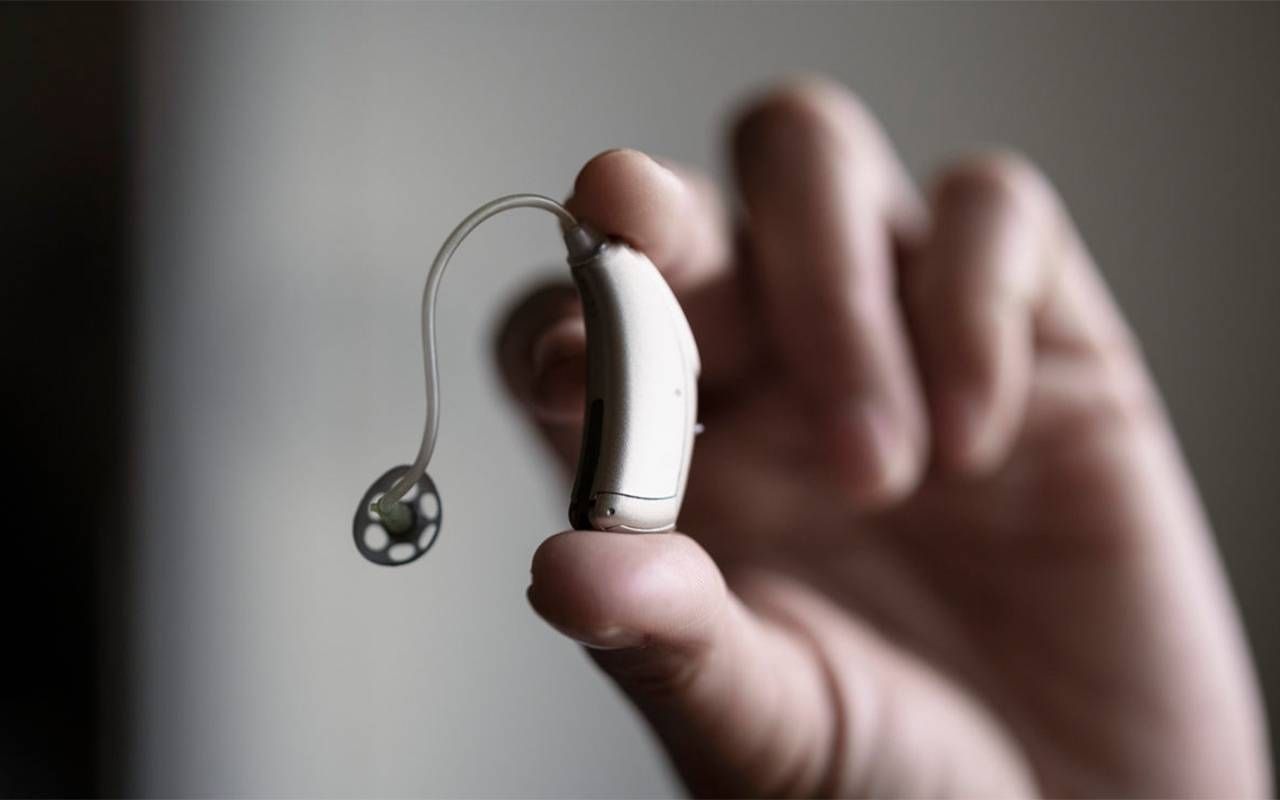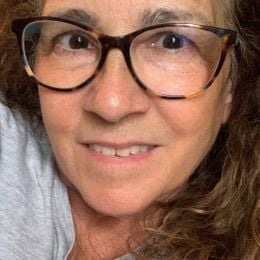Over-the-Counter Hearing Aids: What’s Next?
The what, when, and how of over-the-counter hearing aids
The Food and Drug Administration recently cleared the way for companies to sell hearing aids at the counter directly to consumers, a move designed to provide cheaper and easier solutions for people with mild to moderate hearing loss.

Most people start to see their hearing deteriorate after age 65.
Most people start to see their hearing deteriorate after age 65. However, hearing aids are currently only available through audiologists and can cost thousands of dollars. In addition, Medicare doesn't cover them, and private insurance doesn't always pay the total cost.
That, along with a perceived stigma associated with hearing aids, has kept some people from considering them.
Over-the-counter hearing aids could be a game changer, says Next Avenue's 2021 Influencer in Aging Justin Golub, an ear, nose, and throat doctor and Columbia University professor. He talked to Next Avenue about what consumers can expect when new devices come on the market.
(This interview has been lightly edited for clarity and length.)
Q: When will over-the-counter (OTC) hearing aids be available?
A: I don't think anyone knows precisely. It will probably be sometime later this fall. That's the word on the street. It will probably start with a couple of manufacturers offering them, and there will be more and more options over the next year.
Q: Where will people be able to buy over-the-counter hearing aids?
A: Probably drugstores, next to the reading glasses. In other words, they'll be ubiquitous.
Q: How much will they cost?
A: That's unknown, but most people are talking between $400 and $1,200.
Q: Who can benefit from over-the-counter hearing aids?
People with perceived — that's the keyword, perceived because they're not going to get any hearing tests — mild to moderate hearing loss.
So if you think you have hearing loss, you have two options: Go to the audiologist and get tested for custom hearing aids, or go out and buy them.
I imagine many of these devices will start with some hearing test on a phone that will tell you if your hearing loss is appropriate for the device or not. For example, the devices are not supposed to allow you to amplify hearing on only one side.
"So if you think you have hearing loss, you have two options: Go to the audiologist and get tested for custom hearing aids, or go out and buy them."
This is because hearing loss, on the one side, could be a medical problem. I hope these devices will have some safeguard to test your hearing and that the manufacturer will instruct you to return them and see a doctor if warranted.
Q: Which hearing aids are the most effective?
A: You can choose whether to buy hearing aids directly or see an audiologist first to double-check. The idea of this is to put the power in the hands of the public.
People can use their judgment to decide if they have hearing loss appropriate for these devices. Of course, not everyone has good judgment, but the idea is the benefit outweighs the risk.
The technology with custom hearing aids will almost always be better because it's a more expensive device. However, a lot of what you're paying for is service.
Having a doctoral-level audiologist there to tweak things, answer questions, and help you is part of what you pay for. With over-the-counter hearing aids, it's you, the device, and maybe the Internet.
Q: What features will the best over-the-counter hearing aids have? How can people pick the most appropriate devices?
A: That's to be determined because these products don't yet exist. You'll be able to do your research, ask your friends, look online, read reviews, and use your judgment to decide which product is best for you.
I imagine the devices will generally be for mild to moderate hearing loss, at least in the beginning. Then, as they become more popular, a company could offer two or three lines, one product for those on the mild end that might be a little more discreet and another that's a little more powerful.
Q: Which companies will sell them, and what will they look like?
A: Companies don't generally want people to know about their products until they're ready for market. We hope the big consumer electronic companies that innovate, like those in the headphone space, will develop some good designs.
A key point will be the style. This is wearable technology. There may be some companies that attempt to make them super-discreet and invisible, and there may be some that try to make them stand out.
Take Apple's Airpods. They're bright white. You can spot people wearing Airpods across the street.
"If you want the best possible advice, you want to see an audiologist who can custom-fit them. It depends on your goals, your hearing loss, and your wallet."
In these over-the-counter hearing aids, you may see a further convergence of consumer electronics and headphone devices. For instance, you can turn an Airpod Pro today into an over-the-counter hearing aid and boost ambient volume in iPhone settings.
It wouldn't take much for Apple to pull the switch and make their Airpod a hearing aid. OTC hearing aids may double as Bluetooth headphones. Two products in one would create value for the consumer.
In the '90s, when Bluetooth headsets first became available, people walked around looking like they were talking to themselves. But it changed the social norms. Likewise, I think these devices will sort of change social norms.
If you see someone with a device in their ear, you'll have no idea whether they're listening to headphones trying to block out the word or wearing hearing aids and trying to hear the world better.
Q: What questions are you, as an audiologist, being asked about OTC hearing aids?
A: Mainly, when they will be available and if I recommend them. If you have mild to moderate hearing loss and you want something basic that is relatively portable, you can get OTC hearing aids.
If you want the best possible advice, you want to see an audiologist who can custom-fit them. It depends on your goals, your hearing loss, and your wallet.
The best thing about this is it creates more options for people, and chances are always good. So I think this is an exciting thing.
Over-the-counter hearing aids have been in the works for years. Companies such as Samsung and Panasonic have prepared for the FDA decision since at least 2017.
Even before that, Apple partnered with hearing-aid companies to offer sound-boosting devices. But market watchers expect new products to attract new users and maybe even make hearing aids as mainstream as reading glasses.


